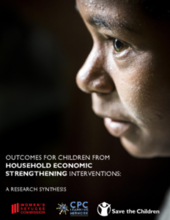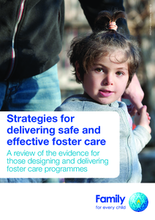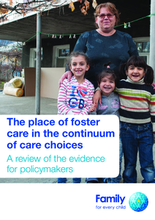Displaying 3471 - 3480 of 4424
This review focuses on the findings from high-quality published evaluation research into economic strengthening (ES) programs, implemented by NGOs, in resource-poor environments in the developing world, where external evaluators measured impacts on any of a wide variety of indicators of children’s or youth’s protection and wellbeing.
The Dutch Ministry of Security and Justice has developed this flyer, along with ECPAT Netherlands, Better Care Network Netherlands and Terre des Hommes Netherlands, to motivate foreign organizations working with children to ask for a Certificate of Conduct when recruiting Dutch volunteers or employees.
These virtual study visit resources from Lumos have been developed for those professionals and policy makers who are involved in the transition from institutional to community and family-based care.
New indicators and tools developed by MEASURE Evaluation, with support from the OVC technical working group of the U.S. President’s Emergency Plan for AIDS Relief (PEPFAR), simplify and standardize the data needed to set measurable goals for an OVC intervention.
The caregiver questionnaire is intended for use as one of the OVC survey tools developed by MEASURE Evaluation, with support from the OVC technical working group of the U.S. President’s Emergency Plan for AIDS Relief (PEPFAR).
This video from Globalsl.org, produced by Kindea Labs, describes both the negative impacts of orphanage volunteering and tourism as well as the ways in which international volunteering can be conducted appropriately for a positive impact on a community.
This report from Family for Every Child begins to fill the gap in understanding on how to deliver effective, safe foster care programmes through an exploration of the literature and interviews with experts.
This report from Family for Every Child explores rising concerns about the expansion of foster care services in low and middle income countries, it begins to fill the gap in understanding, and aims to assist in both states’ and NGOs’ decisions on whether to invest in foster care, and in the kinds of supportive services needed to make foster care safe and effective.
This video was produced as part of the “Don’t Create More Orphans” Campaign, developed by Child Safe Network, Friends International, and partners.
In this article, Yudhijit Bhattacharjee discusses the critical brain development that happens in the first year of a baby’s life, and the impact that growing up in poverty has on that cognitive development.




